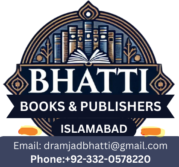Moeen Ahsan Jazbi stands out as one of the most outstanding progressive poets. However, his affiliation with movements and his literary and social theories often diverged from the mainstream. He wasn’t among those progressives whose art succumbed to theoretical dogma. Jazbi’s upbringing was steeped in classical poetic traditions, which led him to emphasize indirect and symbolic expression rather than direct articulation in literature.
Born on August 21, 1912, in Mubarakpur Azamgarh, his poetic journey commenced at a tender age. After passing his high school exams there, he pursued intermediate studies at St. John’s College, Agra, and completed his Bachelor’s from Anglo-Arabic College. Jazbi began reciting poetry at the age of nine, initially influenced by Hameed Shahid Saharanpuri. His literary prowess blossomed through encounters with luminaries like Majaz, Fani Badayuni, and Meekash Akbarabadi in Agra.
During his tenure in Lucknow, his proximity to Ali Sardar Jafri and Subte Hasan acquainted him with progressive literary theories, which propelled him into the ranks of active participants in the movement, especially during his MA studies in Aligarh. After completing his MA, he served as Assistant Editor for the magazine “Aajkal” for a period, and in 1945, he joined Aligarh Muslim University as a lecturer, where he remained actively engaged in various capacities.
Beyond poetry, Jazbi authored several critical works, notably earning a doctorate for his thesis on “Political Consciousness in Hali.” This work became a significant reference in contemporary studies. Additionally, his poetic collections such as “Firozan,” “Sukhan Mukhtasar,” and “Gadaz Shab” are testament to his literary legacy.
On February 13, 2005, Jazbi passed away, leaving behind a rich literary heritage. His poetry, characterized by its blend of classical aesthetics and revolutionary sentiments, continues to resonate with new generations, embodying the spirit of social change and artistic innovation.
In essence, Moeen Ahsan Jazbi’s life and work exemplify the dynamic interplay between tradition and progress, enriching Urdu literature with his unique voice and perspective.
To Get The E-Book, Kindly Click Here:


certainly like your website however you need to test the spelling on quite a few of your posts. Several of them are rife with spelling issues and I find it very bothersome to inform the reality then again I will certainly come again again.
I used to be very happy to find this internet-site.I wanted to thanks in your time for this excellent read!! I undoubtedly enjoying each little bit of it and I’ve you bookmarked to check out new stuff you blog post.